“Unheard voices” speak out
- Oakland Institute
- 05 February 2013
Indigenous Ethiopians demand a stop to human rights abuses stemming from agricultural investment policies

Indigenous Ethiopians demand a stop to human rights abuses stemming from agricultural investment policies
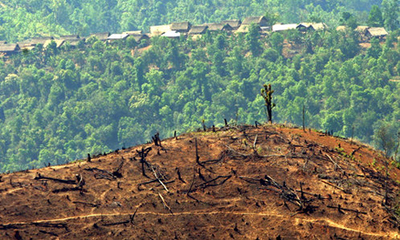
Risk analysts show that operational cost increases can approach 2,800 percent; Myanmar is latest flashpoint in alarming trend
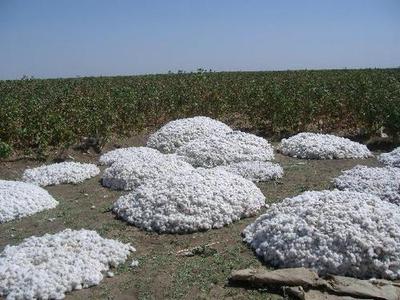
Sudan's Minister of Agriculture discusses aspects of joint cooperation with Iran in sugar beet crops, cotton, oilseeds and rice, expressing his ministry's keenness to remove all obstacles impeding the work of investors.
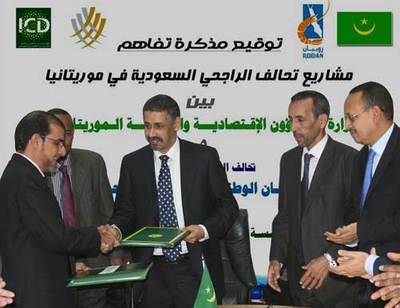
This agreement comes in line with King Abdullah bin Abdul Aziz’s initiative to encourage agricultural investments abroad and the council’s ongoing efforts to develop and expand the field of agriculture.
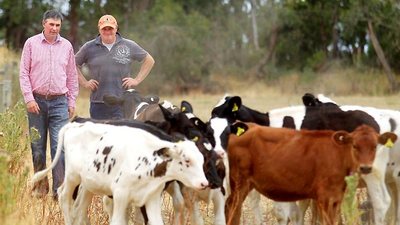
In rural Australia, the hyperbole about agriculture as a boom industry for global investors is not translating into practical benefits at the farm gate
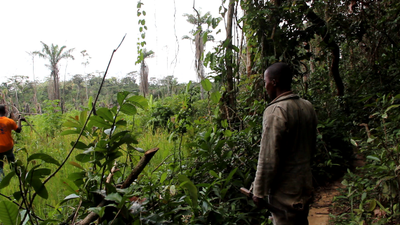
Palm oil companies are grabbing more than 1.5 million acres of land in Liberia and are violating the human rights of local communities, warn Liberian NGOs.
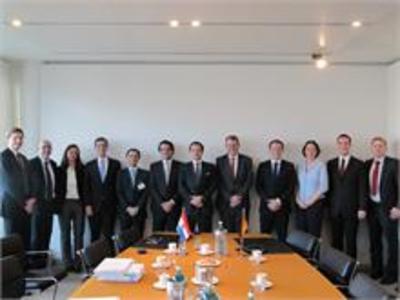
DEG's investment will be used to acquire 5,000 hectares of agricultural land, expanding irrigation systems, cultivating rice for the first time and producing timber sustainably.
The potential for bottom-line financial damage from insecure land tenure risk range from massively increased operating costs – as much as 29 times over a normal baseline scenario, according to our modeling – to outright abandonment of an up-and-running operation.

Faced with reports of land grabbing by Indian companies in some African countries, especially Ethiopia, the government says the Indian companies have taken land on lease as per rules of the country concerned.
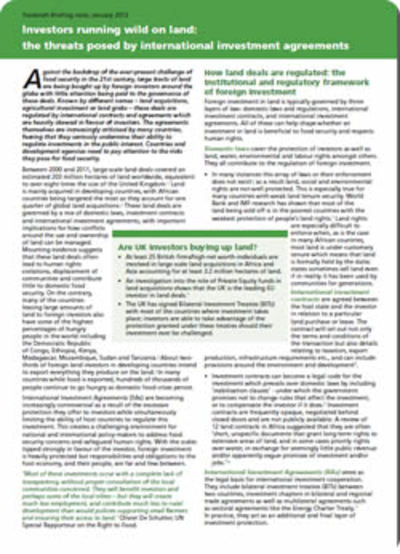
A recent briefing note by Traidcraft discusses the threats posed by current regulation of foreign investment in land highlighting that food security and other human rights concerns often come at the cost of excessive protection of foreign investors’ rights.

La patronne du groupe Louis Dreyfus doit profiter de son séjour en Côte d'Ivoire pour signer un accord avec le ministre de l'agriculture autorisant la mise à disposition, par l'Etat ivoirien, de 100 000 hectares de terres au nord du pays.

Wealthy countries, and private companies from those countries, have been increasingly buying up land in poor areas for their own economic purposes, a new study says. And Israel turns out to be one of the leading land grabbers.